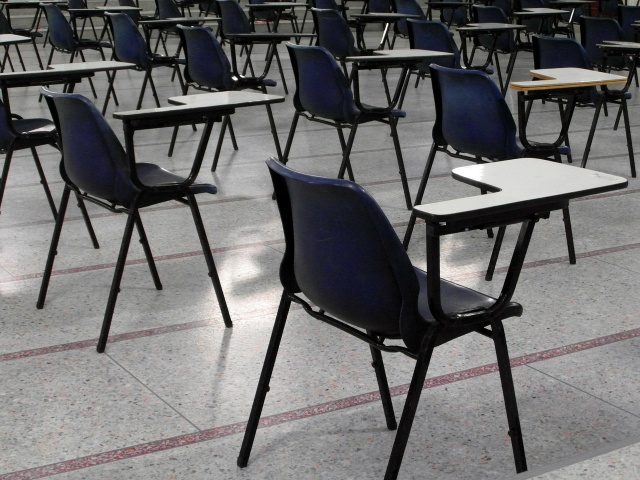
10 Tips for Coping with Examination Stress
Junior and Leaving Certificate
 It’s that time of year again when State exams can be a challenging part of school life for both children and parents. But there are many ways to ease and manage the stress. Here are some of my tips to help students and families.
It’s that time of year again when State exams can be a challenging part of school life for both children and parents. But there are many ways to ease and manage the stress. Here are some of my tips to help students and families.
1. Watch out for signs of stress.
Students can be stressed and they may become irritable. You might find that they may not be sleeping well and worrying to excess. They might appear somewhat depressed and stuck in negative thought patterns with extreme fears of failure. You might find them overeating or restricting their food. Headaches, abdominal pains are often what we see and hear at the clinic. If you see that your child isn’t coping talk to their teachers at school. Guidance counsellors do great work to help alleviate a student’s fear and put them on the right path. They have years of experience within the school environment or talk to your GP who will refer you to a good psychologist with experience of working with teenagers. Your child must put things into perspective, “a problem shared is a problem halved”.
2. Good nutrition.
Try to encourage your son or daughter to eat a well-balanced diet at this time. It is important for them to feel well at this time. Avoid high sugar, high fat and high caffeine food and drinks. Make their favourite meals, it’s a time to indulge them. A good breakfast is vital the morning of the exams, regular snacks with lots of fruit and vegetables help to maintain a good mood and avoid sluggishness. Many teenagers also take multi-vitamins but discuss this with your doctor.
3. Get enough sleep.
We all know that having enough sleep helps aid our concentration and thinking skills. Teenagers need between 8 to 10 hours sleep and at least one good lie in at weekends. Adolescents need a wind down time between finishing study and actually going to sleep. Try to avoid the computer or phone during this period and perhaps read a book or watch a favourite TV programme. Don’t do all-nighters, cramming will only increase anxiety and decrease concentration.
4. Good social support.
Families must be flexible around exam times and offer a good support network. If your child is at home revising all day, try to avoid making noise by cutting the grass or hovering. Put them first. The exams will soon be over and you can return to your usual routine then. Talk to other siblings and request them to be patient and understanding of the exam student. Don’t nag over untidy bedrooms or exam notes all over the study or dining room table. It’s important that they have a ‘space’ that they can call their own for this stressful time.
5. Have open discussions with your son/daughter.
We all got anxious at exam times. Remind your child that this is normal. Help them to feel confident and try to stay as positive as possible. Focus on what they know well rather than what they are struggling with. If they have an older family member they can help encourage this.
6. Help with study plans.
The school teachers often give the children study plans for the last few weeks. Each teacher will do this if you ask and I would say that it’s a good idea to sit down with your son/daughter and try to put a plan together for all subjects once you have the individual subject plans. Include regular breaks in the plan and this will help to keep a student up beat and maintain concentration. Be patient on the days that not all tasks are completed. Some days will be better than others especially if fatigue sets in.
7. Don’t increase the pressure.
The best way to reduce pressure is not to criticize. In clinic I too often hear teenagers complain that their parents say they ‘aren’t doing enough’, ‘my parents don’t listen’, ‘they compare me to other people’, ‘nothing I do is good enough’. At this time our kids need support, and reassurance. Tell them to do their best and compliment them on the efforts they have made. Do not try to get your child to succeed where you yourself have failed. Too often parents try to relive their own dreams through their children. Today most kids sitting the Leaving Cert are young adults. What they lack is life experience but many of them are capable of making good choices and not the choices that their parents impose on them. Remember you want to keep the lines of communication open both now and in the future.
8. Exercise is vital.
Try to encourage the student to be active. Exercise will produce the (endorphins) or happy hormones that we all need. Too often kids give up all sports and become sedentary for the year of the State exams. Walking or swimming are great ways to relax. The odd gym session or exercise class will help relieve tension especially in the latter weeks. It’s also a good break away from the books. Even beating a tennis ball off the garden wall or kicking a football for 10 minutes in the back garden will rejuvenate any student.
9. Practice relaxation or mindfulness for 15 to 20 minutes a day.
This helps enhance a good state of mind and times out from stress of studying. Many schools now bring in teachers of mindfulness or yoga to help students. You can also get relaxation cd’s to help reduce stress. We give all our exam students a cd called ‘relaxation for overcoming stress’ which is a 10-minute relaxation exercise to slow down breathing and become body aware. Visualisation of a place you find peaceful also helps. For me the beach and the sound of the sea always work best.
10. Reward your child for their efforts.
When the exams are over celebrate their completion. Small regular treats are what I encourage from parents. Maybe the night before the exams go out to your favourite restaurant and encourage your teenager to finish study early on that day so that ye can get out. This helps them to relax rather than fret the night before. Once they start they usually settle into the exams over the next few weeks. There are usually a few days of exams both morning and encouraging and these can be tiring days. Buy your child their favourite magazine. Reading this can help them to relax. Many families book a holiday immediately after the exams and this helps too.
In conclusion our teenagers do not come with instruction. Be open and listen to their needs. Be patient, mind them, love them and care for them. It is an important time in their life that will determine their whole future. Remember for us adults it wasn’t easier either but “a healthy mind is a healthy body” as the Dalai Lama once said ‘whatever you are doing ask yourself’ “What’s the state of my mind?”
Good luck to all students doing exams this year.
